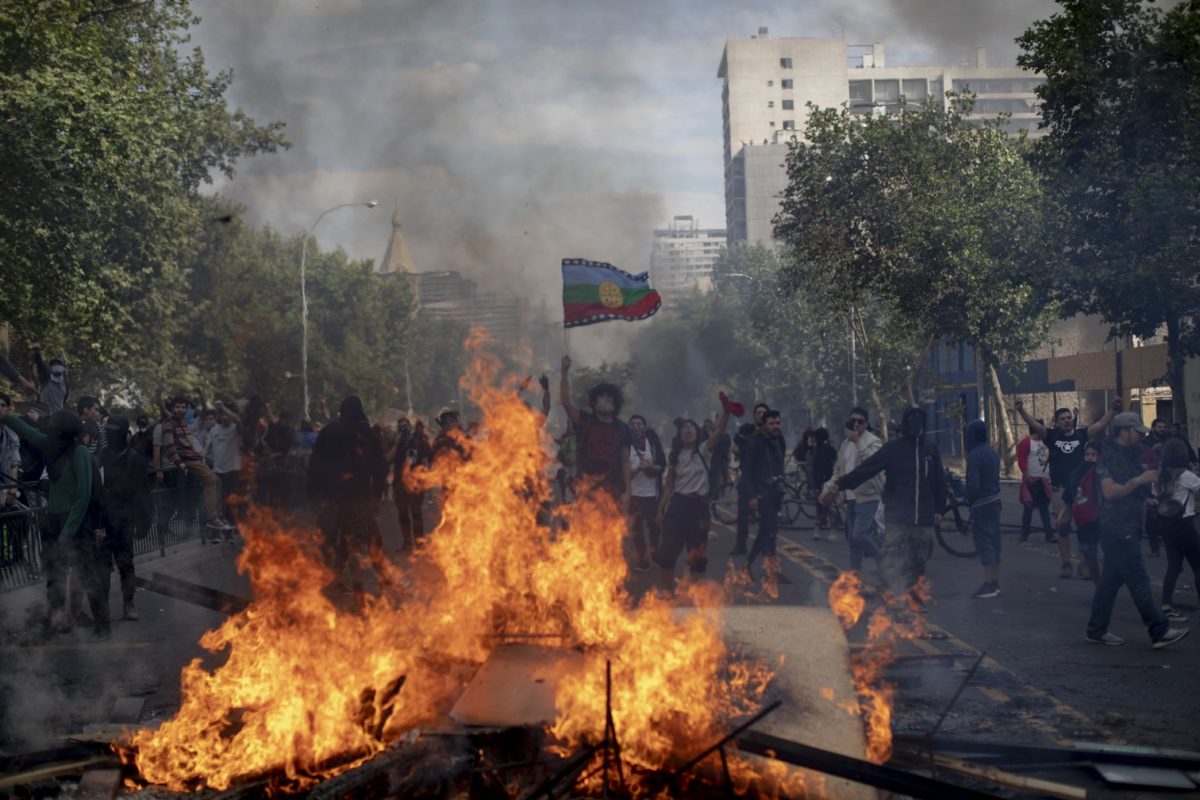Chile was once the neoliberal poster child for Latin America and the broader world of emerging markets. The nominal cause of protests that broke out in October 2019 was a slight increase in the subway fare. But it was connected to something much bigger.
How could a mobilization that began with an increase of the metro fare by 30 pesos be the origin of a questioning of the economic model that transformed Chile into its principal laboratory? “It’s not 30 pesos, it’s 30 years,” the protesters have responded, that is to say, the rise in the cost of public transportation allowed for the emergence of a discontent that had been stewing for decades. “30 years” is a reference to the post-dictatorship period (1989-2019) and the inter-elite arrangement that gave stability to the country.
This past week Chileans voted nearly four to one to create a new constitution, although only half of eligible citizens voted. As the Financial Times noted:
The enthusiasm for change in one of the developing world’s hitherto most stable and prosperous countries is not hard to explain: sudden and prolonged rioting and protests a year ago called attention to deep-seated inequalities, poor quality public services and inadequate pensions. Critics say the current constitution lacks legitimacy because it dates back to the military dictatorship of General Augusto Pinochet, although it has been heavily amended since.
This model drove faster GDP growth, and Chle was long held as a model of reform. However it also created distortions and inequality. Here is how the GZero Signal described it:
However, the 1980 charter largely concentrated power in the hands of Santiago’s political and business elite, who prospered handsomely while the rest of the country got left behind. Over time, the stark disparity bred strong resentment among working-class Chileans fed up with substandard public healthcare and education, students who can’t afford rising tuition fees, the elderly who barely get by on meager public pensions, and indigenous people, who account for 9 percent of the population yet have no cultural or land rights.
It will actually be a long and involved process to draft a new constitution. Many argue that this will lead to moderation. Yet others fear that countless entitlements to please all sides. Whatever the final document says, it wlll have major implications for emerging market investors, and not just in Chile. John Authers at Bloomberg notes:
Everyone should watch carefully what transpires, because the economic model established under Pinochet was much admired and copied, in Latin America and beyond. Chile’s pension system is now the center of popular anger, and yet for decades it was taken as a template for a series of countries embarking on welfare state reform. The problems for Chile’s system will likely recur to a greater or lesser degree in other countries that adopted a defined contribution system of pensions.
…the experience should be a reminder to investors the world over. It may well be healthy for much of the rest of the world to move to a more egalitarian model that people recognize as fair. That is what the populist movements around the western world plainly want. And it is always best to avoid bloodshed. But such transitions are unlikely to be made without a negative hit to the value of stocks and bonds.
